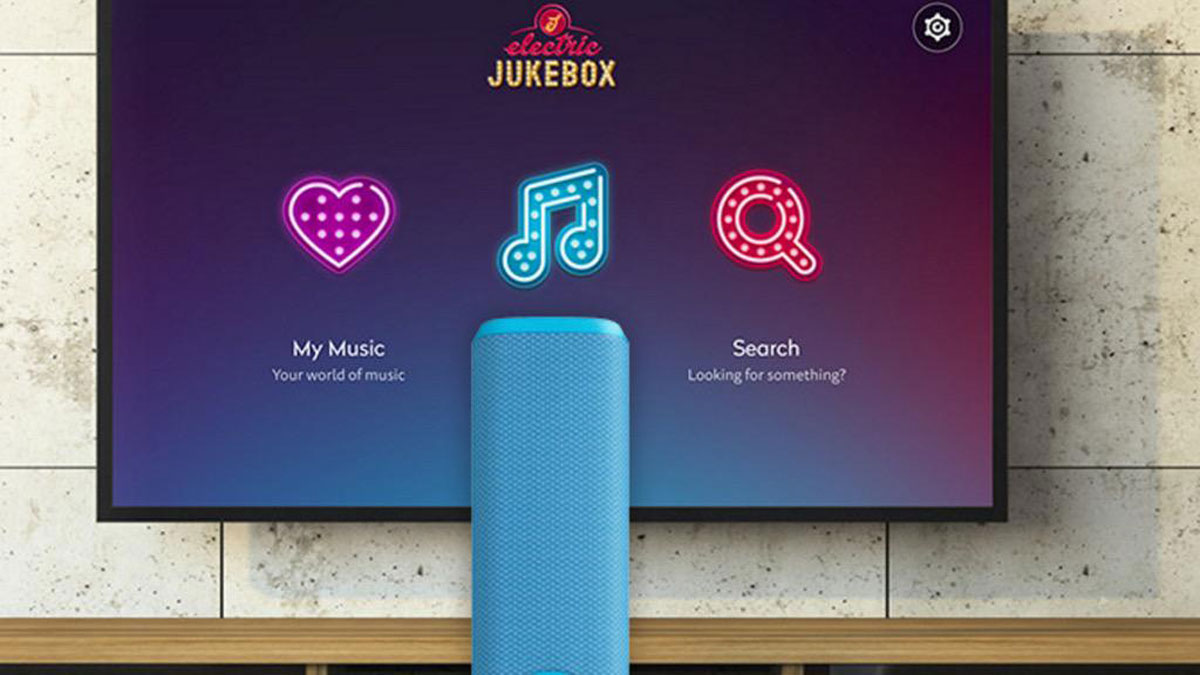Electric Jukebox: Britain's answer to Spotify?
New Internet of Things music appliance hopes to 'bring music streaming to the masses'

A free daily email with the biggest news stories of the day – and the best features from TheWeek.com
You are now subscribed
Your newsletter sign-up was successful
A British company is attempting to make inroads in the music streaming market with what it describes as "the first Internet of Things music appliance for the home".
The Electric Jukebox comprises of two parts, a dongle that plugs into the HDMI port on a TV and a motion sensitive controller with built-in microphone for voice search functionality.
Once set up, the Electric Jukebox will offer users "exclusive playlists and mix tapes" from artists such as Sheryl Crow and Robbie Williams and entertainers such as Stephen Fry. The app also has the usual array of songs and artists that are to be expected from a music streaming service.
The Week
Escape your echo chamber. Get the facts behind the news, plus analysis from multiple perspectives.

Sign up for The Week's Free Newsletters
From our morning news briefing to a weekly Good News Newsletter, get the best of The Week delivered directly to your inbox.
From our morning news briefing to a weekly Good News Newsletter, get the best of The Week delivered directly to your inbox.
Rob Lewis, CEO of The Electric Jukebox Company, believes the product will revolutionise the way ordinary people listen to music. "We want to bring music back into people's living rooms. Rather than huddling around a laptop or smartphone to play music, or being forced to rely on old CDs and radio, we've created a music device that is simple and easy to use and which works straight out of the box."
UK Secretary of State, Culture, Media & Sport, John Whittingdale MP attended the launch event and highlighted the possibilities of the Internet of Things: "The Electric Jukebox is a perfect example of how consumers will be able to access materials that had never before been attainable through the Internet of Things."
The theory behind the Electric Jukebox is to bring music streaming to a mass-market audience. According to a YouGov study commissioned for the product's launch, 92 per cent of consumers are yet to sign up for any music streaming services, with 52 per cent listening to music through their radio and 42 per cent using CDs and Hi-Fis.
"We're not aiming for the Spotify users, they are very well catered for in today's market," Lewis said at the launch. "Whilst some may be comfortable with Spotify and Apple Music, the vast majority of consumers really want something that works instantly, out of the box, without a monthly subscription or credit card."
A free daily email with the biggest news stories of the day – and the best features from TheWeek.com
The single payment system is another key selling point of the Electric Jukebox. Priced at £179, the device comes with a year's free music content – which Lewis said will be the same offering as Spotify and Apple Music. However, should consumers want another year of the Electric Jukebox, without ads and with all the same trappings of the first year, they will have to pay another flat fee of £60. Overall, the Electric Jukebox will cost a consumer £240 over two years, exactly the same price that Spotify and other competitors charge.
In contrast to its music streaming competitors, The Electric Jukebox Company doesn't appear to have had any trouble getting the music industry on board. David Munns – former CEO of EMI North America and currently sitting on the British company's advisory board –highlighted the support of independent musicians and artists for the venture.
Whether the Electric Jukebox achieves its goal of converting the majority of less tech-savvy consumers to music streaming remains to be seen, particularly given that it will find itself up against the far cheaper Google Chromebit and Amazon Fire TV Stick.
Electric Jukebox is available to pre-order from www.electricjukebox.com RRP £179